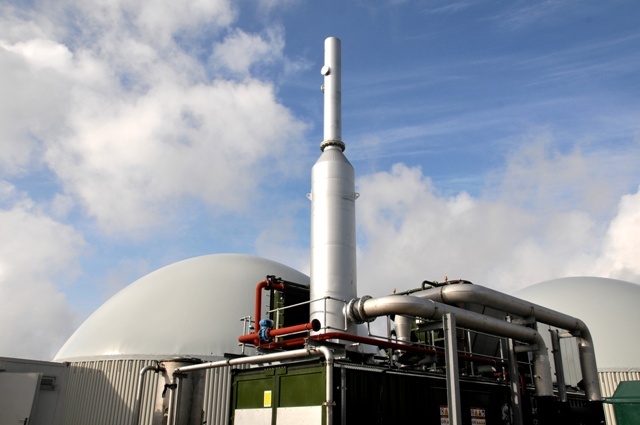
More than 3,000 homes around Basingstoke are to get their power from a new anaerobic digestion facility.
The 1.5MW plant, close to the M3 in Hampshire, will convert approximately 30,000 tonnes of food waste per year into electricity. The waste would otherwise have been sent to landfill.
The plant is the first completed AD project by Tamar Energy, which has received £97 million in initial backing from investors, including the Duchy of Cornwall and Sainsbury’s, to build a network of 40 AD plants in strategic locations around the UK by 2018.
“The completion of construction of our first plant is a significant milestone for Tamar Energy,” said Tamar chairman and chief executive Alan Lovell.
“The project teams of both FLI energy and Tamar Energy have done a fantastic job. A truly collaborative approach has delivered a complex project to time and to budget and all parties are very proud of this achievement.”
FLI Energy managing director Declan McGrath said the company looked forward to working with Tamar on its plans to roll-out a national network of AD plants.
Meanwhile, the Anaerobic Digestion & Biogas Association (ADBA) is to give evidence to the House of Lords tomorrow on the importance of food waste collection.
ADBA chief executive Charlotte Morton will present to the House of Lords EU sub committee on agriculture, environment and energy.
Speaking ahead of the session, she said: “As we know, anaerobic digestion is the best treatment option for inedible food, reducing carbon emissions, producing extremely flexible low-carbon energy and producing a biofertiliser to recycle the nutrients and organic matter back to land.”
She will argue that policies to support AD go hand in hand with policies to reduce food waste.
Recommended for you
